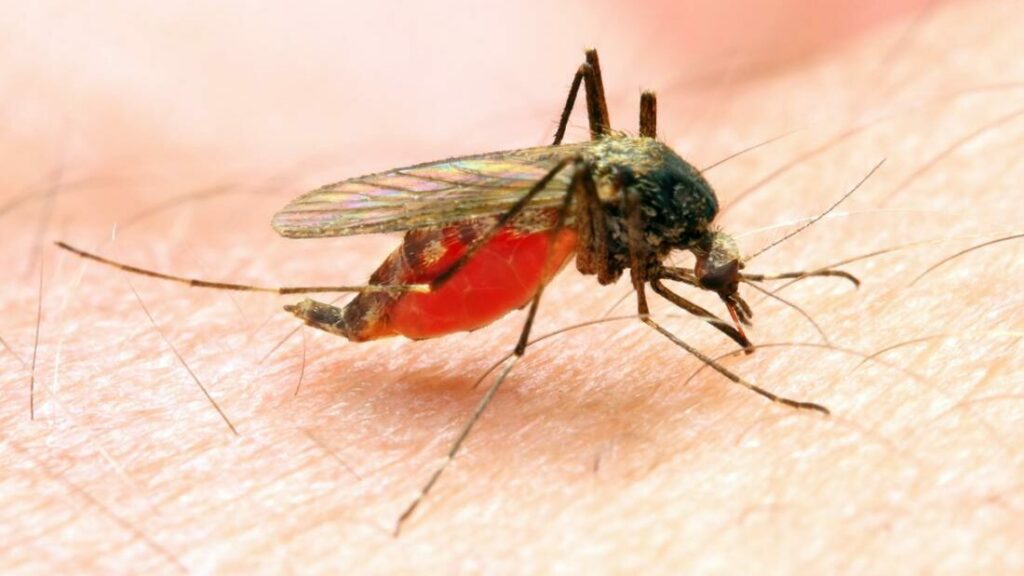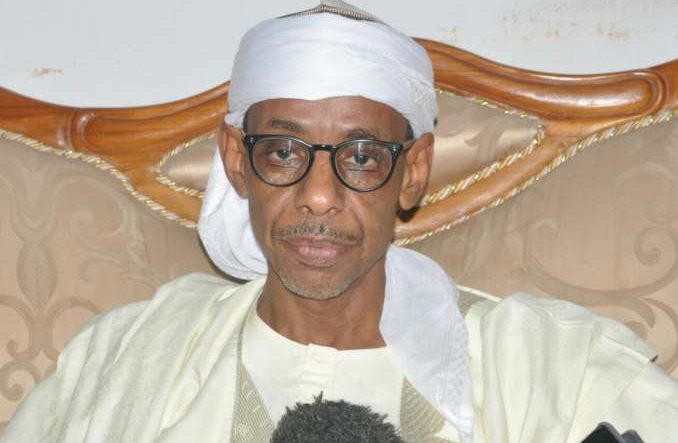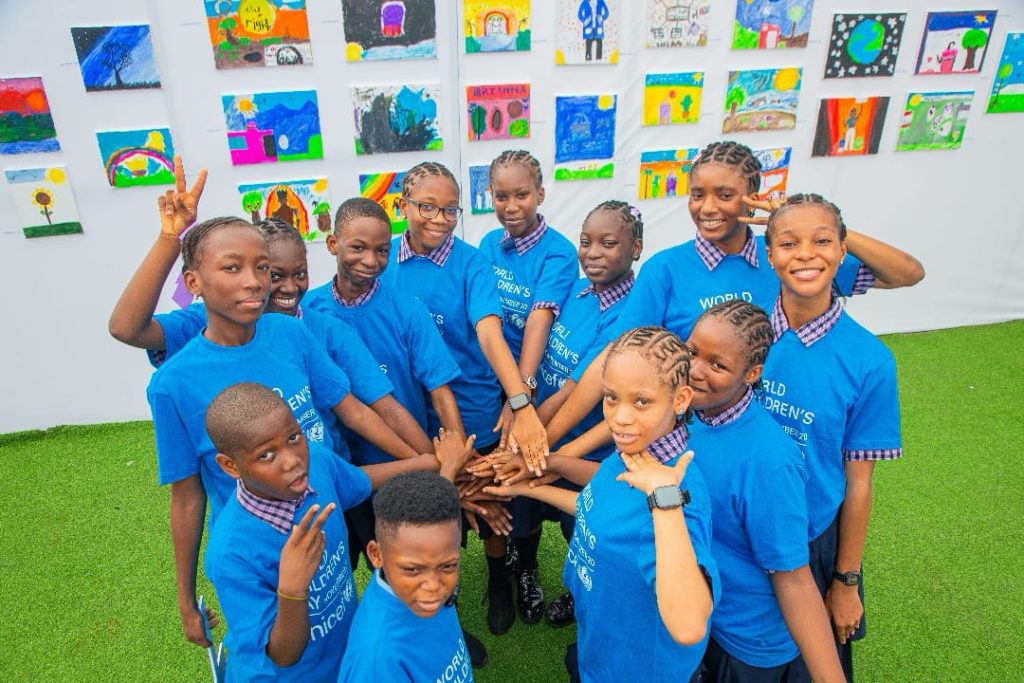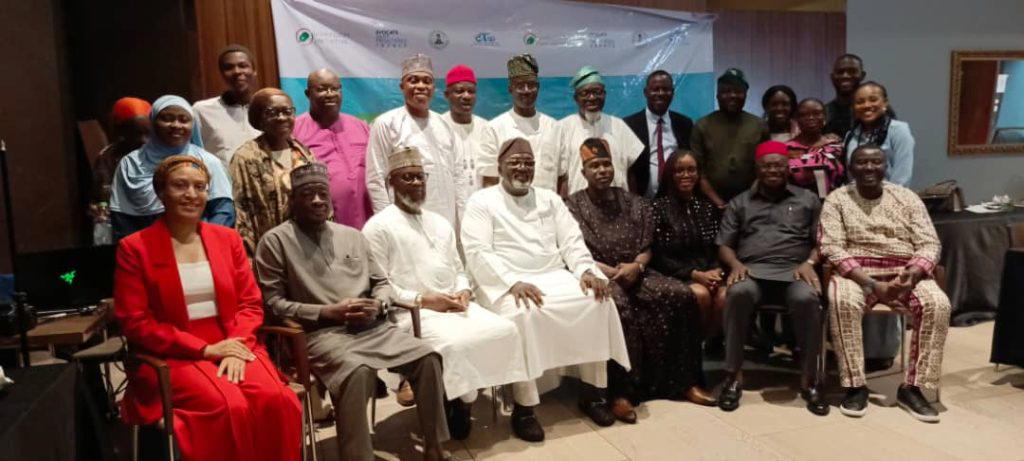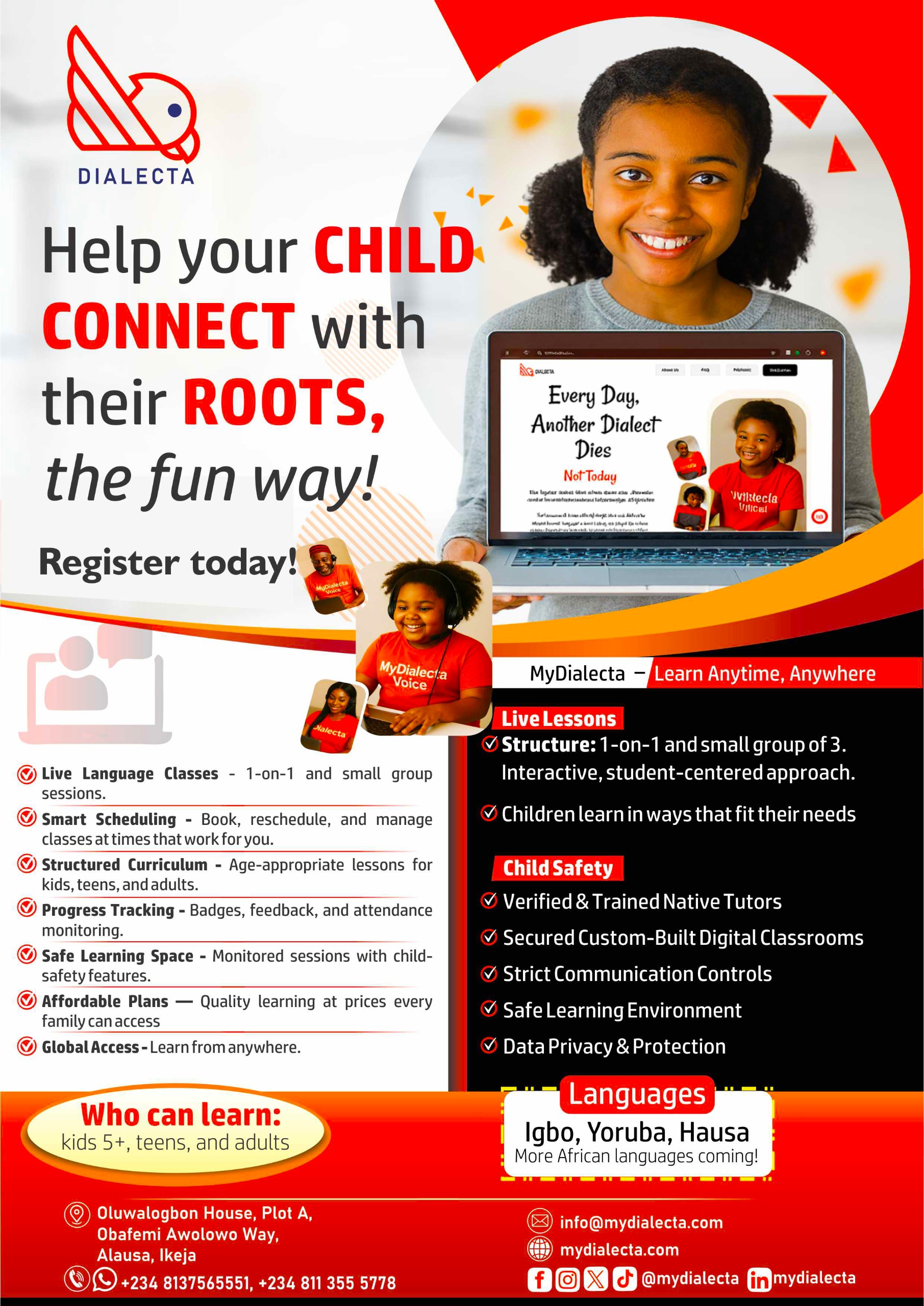
APC’s Stronghold On Opposition Parties: ADC fights back,
By Luminous Jannamike
IN Nigeria’s lively political stage, where ambition and strategy weave together like threads in a grand tapestry, a quiet storm is building ahead of the 2027 general election.
Picture a chessboard where every move is calculated, each piece carries the hopes of millions, and the ultimate prize, power, is fiercely sought after.
The All Progressives Congress (APC), under President Bola Tinubu, is positioning itself to tighten its hold by chipping away at opposition strongholds, setting the stage for an election with little resistance.
But the opposition, though fractured, is far from silent. It is slowly regrouping, driven by public frustration over poverty and encouraged by international attention on Nigeria’s political climate.
Former National Chairman of the African Democratic Congress (ADC), Mr Ralph Nwosu, had alleged that government backed actors were actively working to destabilize the coalition effort by sponsoring some of the party’s state chairmen to pursue legal action aimed at undermining the coalition.
He also alleged that senior government officers offered him three ministerial positions to dissuade him from transforming the ADC into a strong opposition coalition as part of a broader effort to weaken the ADC’s push to lead a coalition capable of challenging the ruling All Progressives Congress (APC) in the 2027 general election.
Nwosu however vowed that no offer or inducement from the ruling party would deter the ADC from opposing efforts to turn Nigeria into a one party state.
Sources in ADC also confirmed that the party was making every effort to ward off APC’s strategies of destabilising the opposition parties which some chieftains of both the Peoples Democratic Party, PDP and the Labour Party accused the ruling party of.
Even former governor of Sokoto state, Alhaji Attahiru Bafarawa, in an open letter to President Bola Tinubu, early this year said rather than scheme to decimate the opposition, the APC should work hard to earn the confidence and trust of the electorate saying in a country where there is no opposition, democracy dies.
The question now is whether the APC’s careful game plan will deliver an easy win, or if the opposition can gather enough strength to break the ruling party’s grip on the nation’s future.
Big Political Fight Ahead
Nigeria’s political scene in 2025 is a high-stakes battleground, with the 2027 general election shaping up to be a defining moment for the country’s democracy.
The All Progressives Congress (APC), under President Bola Tinubu’s experienced leadership, holds a strong advantage, backed by huge resources and a well-oiled political machine built over years of electoral success.
Its main challengers, the Peoples Democratic Party (PDP), Labour Party (LP), and the newly formed African Democratic Congress (ADC) coalition, are struggling with internal rifts and external pressures that threaten their strength.
The stakes could not be higher. A nation worn down by economic hardship and deepening poverty is calling for real change, yet the ruling party appears intent on ensuring no credible alternative can rise to challenge its dominance. Some of their members are even working for the ruling party.
Key figures, including Tinubu, former President Goodluck Jonathan, Atiku Abubakar, Peter Obi, Rotimi Amaechi and Oyo State Governor Seyi Makinde, are positioning themselves for a contest that could reshape Nigeria’s political future.
The North, a traditional power base, remains pivotal. Some leaders back Tinubu’s administration, while others question its commitment to meeting the region’s development needs.
Public anger, fuelled by widespread poverty and rising inflation, is simmering in both cities and rural areas, creating the potential for unpredictable shifts in voter loyalty.
Internationally, Nigeria’s stability is being watched closely, with global powers monitoring how democracy and political control play out in Africa’s most populous nation.
This mix of ambition, discontent, and calculated strategy sets the stage for a political drama in which every decision could shape the nation’s destiny.
“Tinubu has no problem with the North. Today, the North is well-represented in this government. As we speak, some of the most important offices in this government are held by Northerners,” said Ayo Oyalowo, an APC chieftain, in an interview, pointing to appointments such as the Chairman and CEO of the Nigerian Electricity Regulatory Commission (NERC) from Kano as proof of Tinubu’s regional support.
He also dismissed northern critics like Nasir El-Rufai and the Arewa Consultative Forum (ACF) as a minority motivated by personal grievances rather than reflecting the views of the wider region.
“The only people who have issues with him are those who didn’t get what they were looking for,” Oyalowo added.
Strategies, Sentiments, and Global Gazes
The APC’s strategy is bold and calculated, aimed at neutralising opposition forces and clearing the path for dominance in the 2027 election.
Political insiders suggest a coordinated push to destabilise rival parties, with reports of legal disputes and leadership battles hitting the PDP, Labour and now the ADC. The coalition party have issues allegedly ignited by external forces in Benue, Nasarawa and some other places.
Rumours persist of well-funded actors, seen travelling in SUVs with security escorts, fanning these disputes.
The tactics recall the 2023 polls, when the APC was accused of exploiting opposition weaknesses, such as inadequate party agent coverage, to win in unlikely strongholds like Rivers and Benue.
An insider described how ‘technical glitches’ affected the electronic result transmission system (iReV), potentially suppressing votes for candidates like Peter Obi, who, they claim, might have won 40–50% of the votes in some states where less votes were recorded for him.
The ruling party’s approach is said to rest on fragmenting opposition structures to block any unified challenge to President Tinubu’s re-election bid, combining financial clout and political leverage to keep control. But forces in APC counter that, saying that the opposition was merely raising false alarm.
“We want opposition, it is good for us,” one APC Chieftain said on Arise News yesterday.
“When the government claims 52 percent of allocations went to the North, I laugh. It reminds me of the book, ‘How to Lie with Statistics’. What’s on paper isn’t always visible on the ground,” said Professor Tukur Muhammad Baba, ACF’s National Publicity Secretary, on Arise TV’s The Morning Show on Thursday.
He cited the North’s neglected infrastructure, pointing out the absence of 250 uninterrupted kilometres of road in the Northeast.
“I wouldn’t say the North has been abandoned, but there’s definitely a disparity in resource allocation and priorities,” he added, acknowledging inequality but warning against politicising the matter.
The opposition, however, is far from idle. The ADC coalition, launched five weeks ago, brings together political heavyweights such as Atiku Abubakar, Peter Obi, Rotimi Amaechi, Nasir El-Rufai, and David Mark, united in an effort to avoid the vote-splitting that cost them in 2023, when Tinubu won with just 37% of the vote against Atiku’s 29% and Obi’s 25%.
The PDP is weighing a move: offering former President Goodluck Jonathan an automatic ticket, seeing him as a unifying figure who could galvanise support for a southern presidency.
Meanwhile, Oyo State Governor Seyi Makinde’s ‘Seyi 2027 Movement’ is gaining momentum, framing the race as ‘APC versus Nigerians’ and tapping into public frustration over economic woes.
Yet internal friction threatens opposition unity. The PDP faces efforts to remove some key national leaders, while the ADC grapples with court cases in some states, casting doubt on whether a united challenge can be mounted.
“We have Governor Seyi Makinde, a vibrant leader who is doing great things in Oyo. Now that we are talking about the Presidency remaining in the South, these are the two main individuals I stand for: Goodluck Jonathan and Seyi Makinde,” said Daniel Woyengikuro, PDP’s National Financial Secretary, in an interview with Saturday Vanguard.
Dr Gbenga Olawepo-Hashim, a PDP chieftain, recalled the party’s founding in 1998, stressing its inclusive roots.
“The PDP was never meant to be an exclusive club. From day one, it was designed to be a national platform, a big umbrella for all shades of opinion, ideology, and aspiration,” he said.
Public sentiment is adding fuel to the contest. Poverty and inflation are driving widespread anger, with social media buzzing under hashtags like #FixNaija.
At the same time, northern students in Sokoto and Bauchi have celebrated Tinubu’s NELFUND fee payments, reflecting pockets of grassroots support for the APC’s targeted benefits.
This tension, between appreciation for specific government policies and resentment over broader economic hardship, has created a volatile electoral landscape.
Internationally, Nigeria’s political manoeuvres are drawing wary attention from Western diplomats. Remembering the controversies over delays and alleged manipulation in 2023, they are signalling closer monitoring of the 2027 polls.
The global focus raises the stakes: can the APC’s tactics suppress opposition momentum, or will a fractured coalition turn public discontent into a credible challenge?
Pointing to videos of northern students celebrating NELFUND payments as proof of Tinubu’s popularity in the region, Oyalowo higlighted the APC’s northern strategy.
“The honest truth is that some Nigerians have decided to only complain about hunger and ignore the good that is happening. But those who needed to be touched have been touched.
“There was even a town hall meeting with all northern political leaders, and the outcome was positive. They highlighted what the president has done for the region,” Oyalowo noted.
Jonathan’s Potential Return Shakes the Board
This week, the political chessboard shifted sharply with a development that could redefine the 2027 presidential race: the PDP is seriously considering offering former President Goodluck Jonathan an automatic ticket.
Positioned as a Southern candidate with cross-regional appeal, Jonathan’s potential return is designed to unify the PDP and mount a direct challenge to the APC’s hold on power.
His eligibility for a single term under the 1999 Constitution, coupled with the international goodwill earned when he peacefully conceded the 2015 election, gives him formidable political weight. Yet his comeback bid will not be without obstacles.
For the opposition, this represents a turning point, one that could galvanise momentum and force the APC to re-evaluate an election it had hoped to dominate with minimal resistance.
“Is he not the best candidate for us at this moment? He is not just a former president; he is the leader of the party now. Aside from Obasanjo, the next person in line is him.
“For me, that’s what I firmly stand for. You can quote me anywhere: I want him to come. An automatic ticket for him, as it stands now. Because we must salvage both this party and the nation,” said Woyengikuro, pressing for Jonathan’s return and stressing the urgency of his candidacy.
For the APC, Jonathan’s potential entry is a disruption to their narrative of an uncontested victory.
Claims of solid northern support, bolstered by appointments such as the NERC chairman from
Kano and grassroots measures like NELFUND, are already under scrutiny.
The Arewa Consultative Forum (ACF) has questioned whether Jonathan can win northern voters, dismissing the lure of one-term maximum limit he brings to the table as a tactical manoeuvre.
Meanwhile, the ADC coalition, bringing together Atiku Abubakar, Peter Obi, Rotimi Amaechi, Nasir El-Rufai, and David Mark, has intensified efforts to unite behind a single candidate.
At the same time, Oyo State Governor Seyi Makinde’s populist ‘Seyi 2027 Movement’ is resonating among urban youth and rural communities alike.
Still, opposition unity remains fragile. Internal disputes and legal battles threaten to sap momentum, raising a crucial question: can they seize this moment, or will their divisions blunt their challenge?
Internationally, Jonathan’s possible return has caught the attention of foreign observers, who are weighing its implications for Nigeria’s stability, especially given the controversies surrounding the 2023 election.
Ripples and Realignments
The prospect of Goodluck Jonathan’s candidacy is reshaping Nigeria’s political landscape, forcing both the ruling party and the opposition to recalibrate their strategies.
The APC has intensified its northern outreach, with governors from Katsina and Kaduna staging town-hall meetings to spotlight President Tinubu’s achievements, from NELFUND disbursements to flagship infrastructure projects.
These efforts are aimed at countering scepticism and shoring up grassroots loyalty, particularly in northern communities where support remains fluid.
Yet, the Arewa Consultative Forum’s (ACF) critique of neglected infrastructure, particularly the lack of major road networks in the Northeast, has struck a chord with disillusioned voters. Such grievances amplify doubts over the APC’s claims of equitable resource allocation.
While highlighting the North’s developmental challenges, ACF spokesman Baba rejected the notion of a monolithic voting bloc, stressing its political diversity.
“I can’t think of any part of the Northeast with 250 kilometres of uninterrupted, smooth road. Even if the government says it’s building roads or buying tractors, we need to ask: who’s benefiting, and where’s the impact? The North is too diverse; ethnically, religiously, and politically for anyone to claim to speak on its behalf,” he said.
The PDP is seizing the moment, though not without its own complications.
The party is accelerating moves to unite behind a single presidential contender, with Jonathan and Oyo State Governor Seyi Makinde emerging as frontrunners.
Jonathan’s backers aim to harness his experience and Southern appeal, while Makinde’s youth and populist framing of the election as ‘APC versus Nigerians’ is resonating across both urban and rural bases.
However, internal disputes, including attempts to oust certain national officers, threaten to fracture the PDP at a crucial juncture.
The ADC coalition, meanwhile, is embroiled in legal battles in some states, with some insiders alleging external pressure designed to destabilise the opposition.
Strategists within the Northern bloc are reportedly ready to shift their operations to one of Nigeria’s 18 registered parties should the ADC falter, highlighting their determination to keep the race competitive.
Public frustration over poverty, inflation and stagnant wages fuels opposition hopes. Yet, converting anger into electoral gains will require addressing the failings of the 2023 election, including inadequate vote protection and weak polling-day coordination.
“If Jonathan, Atiku, Obi and others wish to (return and) contest, they should be welcomed. Let the best ideas and visions emerge through fair competition. That is how to build a party of the future,” said Olawepo-Hashim, advocating transparent PDP primaries as a way to bolster the party’s democratic credentials. On the international stage, Jonathan’s possible comeback has drawn measured statements from Western governments, urging Nigeria to guarantee electoral transparency in 2027.
The controversies surrounding the 2023 polls, particularly the ‘technical glitches’ that marred results transmission, remain fresh in their memory.
Calls for reforms such as electronic voting and single-day nationwide polling are growing louder. If implemented effectively, such changes could level the playing field and make this election the most competitive in Nigeria’s recent history.
For now, the political battlelines are still being drawn, but the stakes are already clear: a contest that could redefine Nigeria’s democratic trajectory, with both sides scrambling for every strategic advantage in a race that is anything but decided.
A Nation at a Crossroads
As Nigeria edges closer to the 2027 general election, its political future hangs in a precarious balance. The ruling All Progressives Congress (APC) is pursuing a calculated strategy: fragment the opposition through alleged sponsorship of internal crises, exploit lingering weaknesses from the 2023 polls, and consolidate its grip on power with well-timed appointments and populist initiatives.
President Tinubu’s administration, buoyed by northern appointments and high-profile schemes such as NELFUND, retains a formidable position.
Yet, the growing tide of public discontent; fuelled by worsening poverty, inflation, and stagnant wages, poses a serious threat to its dominance.
Insiders predict the APC will respond to any challenge from former President Goodluck Jonathan or the ADC coalition with aggressive, resource-backed media campaigns to protect its political turf.
“We would get more votes in those places (far-flung rural communities). Forget when the elite talk, because the elite are negotiating, asking for something,” APC stalwart Oyalowo said, voicing confidence in Tinubu’s ability to expand his northern support in 2027.
The opposition, however, is not without momentum. The ADC’s coalition, bringing together political heavyweights such as Atiku, Obi, Amaechi, El-Rufai, and Mark, and the PDP’s internal debate over fielding Jonathan, Obi, or Oyo Governor Seyi Makinde could reinvigorate their base.
Jonathan’s potential candidacy in particular, with its Southern appeal and one-term constitutional limit, is seen as a unifying option. But internal disputes, legal battles, and suspected external interference risk undermining these gains before they crystallise.
The North remains the electoral wildcard.
As the Arewa Consultative Forum (ACF) repeatedly stresses, no single party or candidate can take the region’s diverse electorate for granted.
“Let’s be clear: the one-term promise is not a constitutional requirement. To me, it’s a crass campaign tactic.
The electorate should decide whether a candidate deserves a second term, and denying them that choice would short-change the nation,” ACF spokesman Baba said, dismissing claims that northern voters could be swayed by such pledges.
He added: “The ACF is political but non-partisan. It has never endorsed any candidate.”
Public dissatisfaction could be a powerful opposition asset, if harnessed effectively.
However, the shadow of voter apathy looms large, especially if confidence in the electoral process continues to erode. Overcoming the failures of 2023, particularly the absence of robust vote protection, will be critical to mounting a credible challenge.
Internationally, Nigeria’s democratic stability is under close watch. Western diplomats, still mindful of the ‘technical glitches’ and credibility disputes of the last election, are expected to intensify calls for reforms such as electronic voting and single-day nationwide polls, changes that could fundamentally alter the 2027 contest.
“Desperation is driving many into various combinations and choices. These are interesting times, but it’s a long way to 2027. Politicians are looking for the right team to appeal to voters,” Baba observed, noting the shifting alliances shaping the pre-election battlefield.
Nigeria stands at a decisive crossroads. The APC’s strategic manoeuvring, while formidable, is not impregnable.
The opposition’s resilience, fuelled by economic frustration and strengthened by new alliances, could make for a fiercely competitive race. But unity, discipline, and effective vote protection will be decisive.
The question remains: can the opposition rally around a single, credible candidate in time, or will Tinubu’s well-laid political gambits secure him an ‘uncontested’ return to power? The answer will be written in the moves yet to unfold, as Nigeria’s democracy braces for one of its most defining tests in 2027.
The post APC’s Stronghold On Opposition Parties: ADC fights back appeared first on Vanguard News.
,
“For now, the political battlelines are still being drawn, but the stakes are already clear: a contest that could redefine Nigeria’s democratic trajectory, with both sides scrambling for every strategic advantage in a race that is anything but decided.”
The post APC’s Stronghold On Opposition Parties: ADC fights back appeared first on Vanguard News.
, , Idowu Bankole, {authorlink},, , Vanguard News, August 9, 2025, 2:00 am



